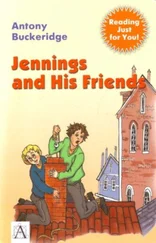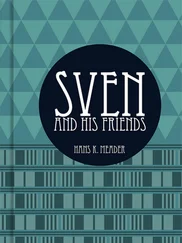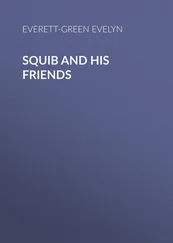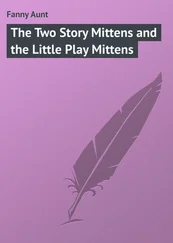Marshall Saunders - Golden Dicky, The Story of a Canary and His Friends
Здесь есть возможность читать онлайн «Marshall Saunders - Golden Dicky, The Story of a Canary and His Friends» — ознакомительный отрывок электронной книги совершенно бесплатно, а после прочтения отрывка купить полную версию. В некоторых случаях можно слушать аудио, скачать через торрент в формате fb2 и присутствует краткое содержание. Жанр: foreign_children, foreign_antique, foreign_prose, на английском языке. Описание произведения, (предисловие) а так же отзывы посетителей доступны на портале библиотеки ЛибКат.
- Название:Golden Dicky, The Story of a Canary and His Friends
- Автор:
- Жанр:
- Год:неизвестен
- ISBN:нет данных
- Рейтинг книги:5 / 5. Голосов: 1
-
Избранное:Добавить в избранное
- Отзывы:
-
Ваша оценка:
- 100
- 1
- 2
- 3
- 4
- 5
Golden Dicky, The Story of a Canary and His Friends: краткое содержание, описание и аннотация
Предлагаем к чтению аннотацию, описание, краткое содержание или предисловие (зависит от того, что написал сам автор книги «Golden Dicky, The Story of a Canary and His Friends»). Если вы не нашли необходимую информацию о книге — напишите в комментариях, мы постараемся отыскать её.
Golden Dicky, The Story of a Canary and His Friends — читать онлайн ознакомительный отрывок
Ниже представлен текст книги, разбитый по страницам. Система сохранения места последней прочитанной страницы, позволяет с удобством читать онлайн бесплатно книгу «Golden Dicky, The Story of a Canary and His Friends», без необходимости каждый раз заново искать на чём Вы остановились. Поставьте закладку, и сможете в любой момент перейти на страницу, на которой закончили чтение.
Интервал:
Закладка:
We watched her from the window, all of us except my father Norfolk. He sang all the rest of the day at the top of his voice, almost a screaming song. He sang because he thought his heart was breaking, but in a few weeks he was flying about with Avis, the canary who ate her eggs. Her mate Spotty had died, and our Mary was pleased to have her take up with Norfolk, for he was a steady bird and always at home, not like poor Spotty, who used to be mostly at the opposite end of the bird-room from his home, gossiping and chattering with canaries when he should have been attending to his mate.
My mother’s death saddened me terribly, and for a long time I spent a large part of every day in the bird-room with my young brothers and sisters, all of whom had nice names. The hen-birds were Pretty Girl, Beauty, and Cantala, and the males were Pretty Boy, Redgold, and Cresto. Such little dear things they were, all gentle and good, no fighters among them.
At first Green-Top let me help him father them. Then when he got over his grief he began to beat me again, and I lost feathers.
When I speak of beating, I must not be taken too seriously. When canaries fight, they fly up into the air and down again, fluttering wings, crying out, and making dashes at each other—a great fuss and flurry, but not much harm done. The hen-birds fight this way a good deal in nesting time, then their mates come and help them, and the whole bird-room is in a commotion.
A more serious way of fighting is chasing. One bird takes a dislike to another bird and pursues him unmercifully, striking him about the head till his beak is sore and bleeding. That is the way Green-Top served me, and soon I made up my mind that I was not needed in the bird-room and I got into the habit of spending about all my time downstairs, only coming up once in a while to see how all the birds were, and find out if they were getting anything to eat that I did not have.
Everybody was so good to me. Hester put little tidbits on my shelf in the kitchen, Mrs. Martin was always handing dainties to me, and even Mr. Martin would bring home a fine apple or some grapes or an orange for me to peck at.
The children were the best of all. Not a bit of candy or cake did they get but what a bit was saved for me, and many a greasy or sticky little morsel that I just pretended to eat was laid before me.
It was curious about those children. They were rather naughty with human beings, but ever since their cousin Mary allowed them to go in the bird-room, once a day with her, they had become nicer to birds and animals.
CHAPTER V
MY NEW FRIEND, CHUMMY HOLE-IN-THE-WALL
AS I have said before, a strange longing to be out of doors came over me as winter passed away and spring approached. I never wearied of sitting on the window ledges and watching the plucky little English sparrows who sometimes came to the bird-room window and talked over the news of the day with us.
Most of the canaries were very haughty with them, and looked down on them as inferior birds. So the sparrows rarely approached us, unless they had important news to communicate, when eagerness to hear what they had to say made the canaries forget to snub them.
That clever woman, Mrs. Martin, knew that I wished to get out in the street, and one day when there was a sudden thaw after very cold weather, she said to me, as I sat on her bedroom window sill, “I believe my little boy would like a fly out of doors.”
“Dear Missie, Missie, Missie,” I sang, “how sweet you are to me, how sweet!”
“Fly away, then,” she said, throwing up the window. “I don’t think the air is cold enough to hurt you.”
“Thank you, thank you,” I sang, as I flew by her and out into the fresh air.
How can I ever describe my feelings on my first flight into the great big out-of-doors. I had, in my callow innocence, thought the Martin house very large and grand. Why, this big, out-door house had a ceiling so far away that only a very strong bird could ever fly to the top of it.
I felt breathless and confused, and flying straight to a big tree in front of the window, flattened myself against a dark limb, and crouched there half frightened, half enchanted with myself.
Suddenly a sharp little voice twittered, “Oho! little golden bird, and who are you?”
I knew that a street sparrow’s eyes are everywhere, so I was not surprised on looking up to see a male bird, with quite a pretty black throat patch, sitting on a limb above me.
“I am a canary,” I said.
“I know that,” he replied, rather impatiently, “but how is it that you are so strong of wing? You fly like a wild bird.”
“I have not always been in the bird-room,” I said; “I have flown all over the house and exercise has strengthened my wings.”
“Oh, you are the little youngster I have noticed looking from between the window curtains. How is it that you were allowed to leave the bird-room?”
“The canaries call me Dicky-Dick the Rover. At an early age I found the bird-room small,” I said, not wishing to tell him about my troubles with my brother.
“How old are you?” he asked.
“Nearly a year.”
“What is your name?”
“Richard the Lion-Hearted,” I said, thinking to impress him by its length, “but my mistress says that is too heavy a name for such a tiny bird, so she shortens it to Dicky-Dick and sometimes Dicky-Duck.”
“The Lion-Hearted,” repeated the sparrow. “That name doesn’t suit you. You seem to be a very gentle bird.”
“I am gentle till I am roused,” I said meekly; “then I am a fair fighter. Now, will you tell me what your name is?”
“Chummy Hole-in-the-Wall.”
This beat my name, and I said, “That’s a double, double surname.”
“Yes,” he said proudly. “It’s a good name, given to me by all the sparrows of the neighborhood.”
“And may I ask how old you are?”
“Six years.”
“You must be very wise,” I said. “I feel as if I knew a great deal, and I am not one year yet.”
“I know everything about this neighborhood,” he said grandly. “If you wish the life history or habits of any bird here, I can inform you of them.”
“I shall be sure to come to you for information,” I said. Then I asked anxiously, “What are the birds like in this street?”
“Pretty decent, on the whole. There were some bad sparrows and two ugly old pigeons, but we had a midwinter drive, and chased them all down in St. John’s ward, where the common birds live. You know we sparrows have our own quarters all over this city.”
“Have you?” I said. “Like big bird-rooms?”
“Yes, my little sir, we in this district near the gray old university are known as the Varsity sparrows. We are bounded on the north by Bloor Street, on the south by College Street, on the east by Yonge Street, and on the west by Spadina Avenue, and this is the worst street of all for food.”
“I have heard that this has been a very hard winter for all birds,” I said.
“It has been perfectly terrible. It snowed, and it snowed, and it snowed. Every scrap of food was under a white blanket. If it hadn’t been for covers left off trash cans, and a few kind people who threw out crumbs, the sparrows would all have died.”
“The snow is going now,” I said, with a smile.
He laughed a queer, hard little sparrow laugh, and looked up and down the street. The high rounded snow banks were no longer white and beautiful, but grimy and soot-laden, and they were weeping rivers of dusky tears. The icy sidewalks were so slippery with standing water that ladies and children went into the street, but it was not much better there, and often they lost their rubbers, which went sailing down the streams like little black boats.
Читать дальшеИнтервал:
Закладка:
Похожие книги на «Golden Dicky, The Story of a Canary and His Friends»
Представляем Вашему вниманию похожие книги на «Golden Dicky, The Story of a Canary and His Friends» списком для выбора. Мы отобрали схожую по названию и смыслу литературу в надежде предоставить читателям больше вариантов отыскать новые, интересные, ещё непрочитанные произведения.
Обсуждение, отзывы о книге «Golden Dicky, The Story of a Canary and His Friends» и просто собственные мнения читателей. Оставьте ваши комментарии, напишите, что Вы думаете о произведении, его смысле или главных героях. Укажите что конкретно понравилось, а что нет, и почему Вы так считаете.












